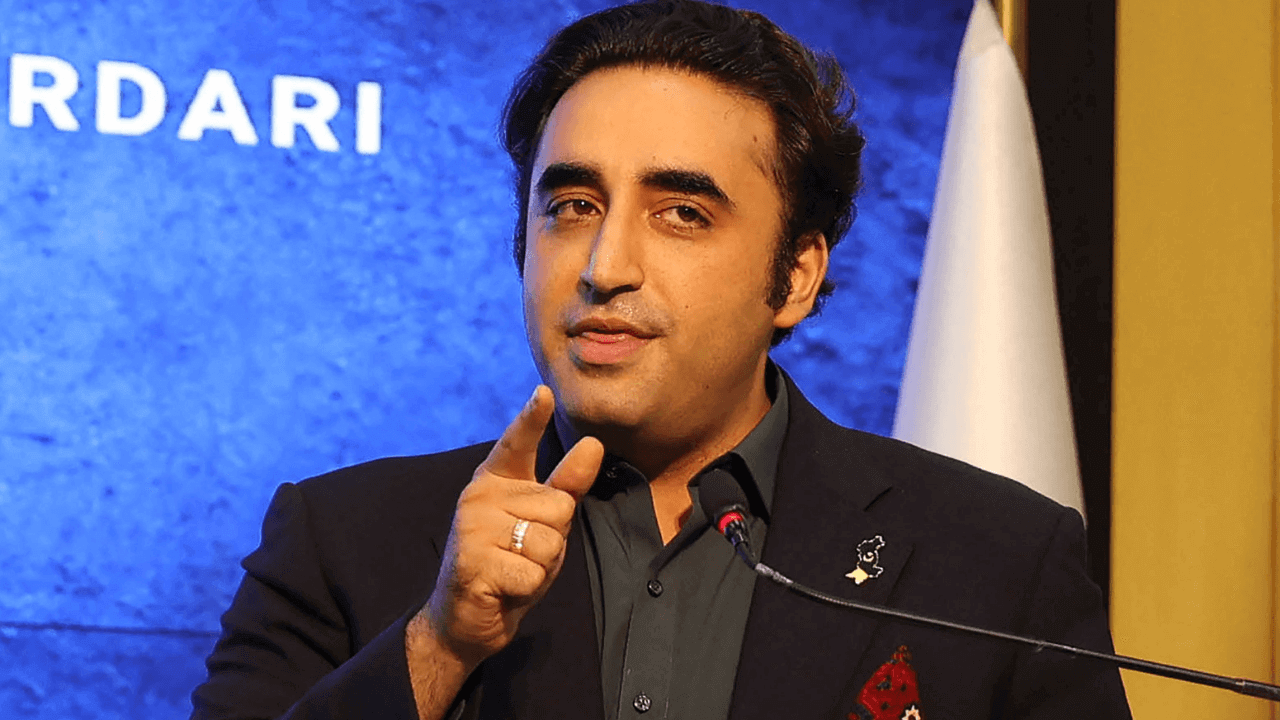Pakistani Foreign Minister Bilawal Bhutto Zardari on Friday criticised the Taliban regime in Afghanistan, claiming that Islamabad has “strong proof” that Tehreek-e-Taliban Pakistan (TTP), otherwise known as the Pakistani Taliban, has been granted ‘safe havens’ outside Pakistan.
He lamented that the Taliban had failed to match Pakistan’s “hope and expectation” that they would contain the TTP’s cross-border activities.
In this regard, he said that Pakistan had presented a “comprehensive dossier” to the United Nations on the organisational and institutional support the TTP and other terror groups in Pakistan are receiving from abroad.
However, TTP Chief Noor Wali Mehsud refuted reports of foreign funding and claimed that all its attacks have been from “Pakistani soil.
“We have the ability to fight for many more decades with the weapons and spirit of liberation that exist on the soil of Pakistan,” he said.
BREAKING: #BNNPakistan Reports.
— Gurbaksh Singh Chahal (@gchahal) December 19, 2022
The leader of the banned Tehreek-i-Taliban Pakistan TTP, Noor Wali Mehsud, has made an attempt to rebuff the impression that his organization receives any support from the Afghan Taliban government in Kabul by asserting that pic.twitter.com/etxI9sdzTD
Speaking at an event commemorating the 2014 massacre of the Army Public School in Peshawar, wherein the TTP killed 149 people, including 132 children, Zardari said the incident was a “particularly heinous” attack that targeted children. “It was a targeted attack designed to deal a grievous blow to the morale of the people of Pakistan,” he remarked.
He noted that the shock of the attack motivated Pakistan to “eliminate all terrorists from their soil,” referring to widespread military operations in areas bordering Afghanistan that resulted in the temporary neutralisation of the TTP.
“Pakistan’s operations were successful. Our territory was cleared of terrorists. We paid a heavy price – 80,000 civilians and soldiers killed or injured and the economy set back by $120 billion,” the foreign minister asserted.
Since then, the TTP has found protection in other countries, Bhutto said, which has resulted in even more attacks on Pakistani civilians and the military.
“The TTP seems to have been emboldened to declare a ‘war’ against Pakistan. Its attacks have intensified,” he said, highlighting that his own mother, former Prime Minister Benazir Bhutto, was assassinated by the group.
Bhutto warned that Islamabad will no longer “tolerate” cross-border terror attacks and vowed to take “direct action” against groups like the TTP and the Baloch Liberation Army, which he said are financed and supported by “hostile quarters.”
Apart from running our economy to the ground, this Imported govt has failed to deal with the 50% increase in terrorism in Pak with incidents from Chaman to Swat to Lakki Marwat to Bannu; They have also failed to deal with attacks from the international Pak-Afghan border by
— Imran Khan (@ImranKhanPTI) December 19, 2022
To this end, he demanded that the international community mobilise its resources to counter terrorism and eliminate safe havens, curb the sources of financing and sponsorship, and hold individuals and entities accountable for orchestrating and funding terror activities.
In a press conference following the meeting, when asked about Pakistan’s plan to deal with the Taliban over its decision to protect TTP, he acknowledged that the Taliban regime is a “reality” that has forced Pakistan to weigh up different “modes and ways” of engagement with Afghanistan, particularly on the TTP issue.
During his trip to the US, the foreign minister also gave an interview to Newsweek, in which he attributed an uptick in terror attacks in the country to the Taliban’s rise to power in Kabul. Nevertheless, he assured that Islamabad believes that the de facto government still plays a critical role in ensuring regional peace.
Moreover, he argued that Pakistan has “actually managed to get a grapple on the issue of terror,” asserting that there has been a sharp drop in the number of overall incidents of violence since 2006-2007.
In this regard, he pointed to how Pakistan was recently removed from the Financial Action Task Force’s “grey list.”
Terrorism backfires on #Pakistan. #Taliban Pakistan (TTP) captures Pakistan Army Major. Taliban spokesman claims he "had a dream to catch him, kill him... we should be allowed to go to #Afghanistan otherwise we will kill them"
— Tarek Fatah (@TarekFatah) December 18, 2022
pic.twitter.com/8ZYG4HQBzU
At the end of last month, the TTP declared the end of its ceasefire with the Pakistani government and ordered its fighters across the country to launch nationwide attacks.
In fact, on Sunday, seven TTP militants stormed the Counter Terrorism Department’s facility in Bannu, taking nine soldiers hostage, demanding a helicopter, and evacuation to Afghanistan. While reports initially said the imprisoned militants had taken over the facility, social media videos showed that the attack was orchestrated by militants outside the facility who then freed the inmates.
Authorities have not clarified the affiliation of the attackers and TTP has yet to confirm or deny its links with the militants.
Separately, four police officers were killed in a terror attack in Bargai, Lakki Marwat on Saturday. The terrorists attacked the police station with automated weapons, rockets, and grenades.
Echoing Bhutto’s concerns about the TTP, Commander of Central Command (CENTCOM), General Michael E Kurilla, said on Saturday that the United States (US) would work with Pakistan on countering terrorism and ensuring regional security. He recalled his last week’s visit to Islamabad, saying that he discussed the cross-border terrorism threats and the importance of a “peaceful and stable Afghanistan.”

